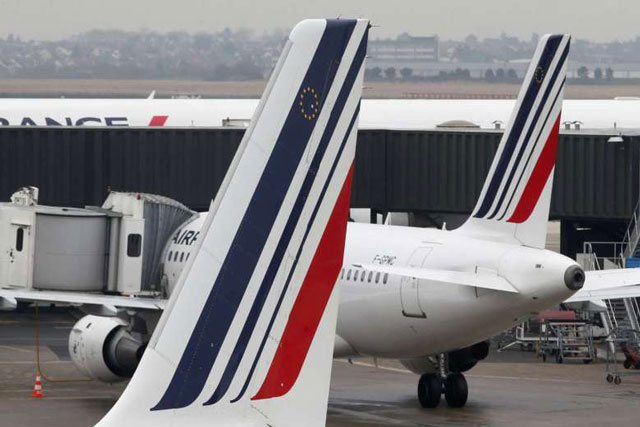
The government said that the funds from tickets for flights originating in France would be used to create less-polluting transport options as concerns grow about carbon emissions from planes.
The move, which will take effect from 2020, will see a tax of €1.5 ($1.7) imposed on economy-class tickets on internal flights and those within Europe, Transport Minister Elisabeth Borne said.
It will rise to €9 for within the European Union in business class, €3 outside the EU in economy class and a maximum €18 for flights outside the European Union in business class, she added.
The new measure is expected to bring in some €180 million a year, which will be invested in greener transport infrastructure, notably rail, she said.
“France is committed to the taxation of air transport but there is urgency here,” she said.
It will only be applied on outgoing flights and not those flying into the country, Borne added.
Flights to the French Mediterranean island of Corsica and also the French overseas departments - which are hugely dependent on air links for their existence - will be exempt, she said.
Shares in Air France fell sharply, down almost 4% to trade at €8.54. Its German competitor Lufthansa also traded lower with its shares falling 2.50% to €14.8.
Air France slammed the measure, which it said would “strongly penalise its competitiveness” at a time when it needed to invest, notably in renewing its fleet, to reduce its carbon footprint.
A similar tax was introduced in Sweden in April 2018, which imposed an added charge of up to €40 on every ticket in a bid to lessen the impact of air travel on the climate.
Sweden has seen the development of a movement called “flight shaming” (flygskam) spearheaded by 16-year-old schoolgirl Greta Thunberg who has become a symbol of the fight against climate change.
The industry has been under fire over its carbon emissions, which at 285 grams of CO2 emitted per kilometre travelled by a passenger far exceed all other modes of transport. Road transportation follows at 158 and rail travel is at 14, according to European Environment Agency figures.
Published in The Express Tribune, July 10th, 2019.
Like Business on Facebook, follow @TribuneBiz on Twitter to stay informed and join in the conversation.






1732084432-0/Untitled-design-(63)1732084432-0-270x192.webp)










COMMENTS
Comments are moderated and generally will be posted if they are on-topic and not abusive.
For more information, please see our Comments FAQ